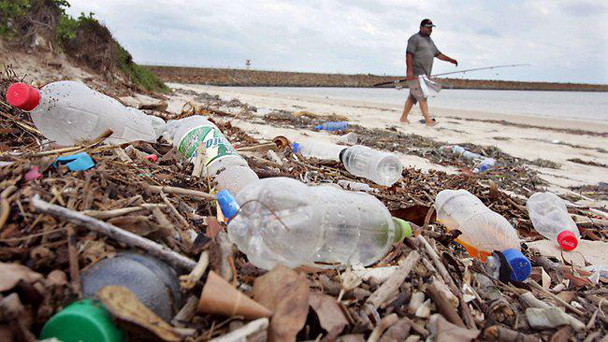
With the upcoming introduction of a new Container Deposit Scheme (CDS) in NSW due for in June 2017, a peak body for the convenience industry has voiced concerns over the timeframe of the rollout.
Australasian Association of Convenience Stores (AACS) CEO Jeff Rogut urged the government to “consider a staged implementation of the CDS”.
With the state Environmental Protection Authority (EPA) due to appoint a CDS scheme co-ordinator and collection network operator in April 2017, Mr Rogut said this would leave only a short time for implementation of the scheme.
“This leaves an eight to ten-week timeframe to roll-out the scheme, including striking contracts with third-party collection points, and physically installing the infrastructure necessary to ensure the scheme is effective,” he said.
Speaking with C&I this week, Mr Rogut went further to say that the EPA has not been forthcoming in answering questions put to the organization by AACS regarding details of the rollout, and that he had addressed his concerns directly to the NSW Premier’s office.
“From today, there are about 25 weeks until the CDS is due to commence on the 1 July 2017,” he said.
“At this point a multitude of critical and significant details remain unknown, including [that] no scheme co-ordinator and no network operators have been appointed; no infrastructure is in place for the collection of containers; there has been no indication as to the quantum of the levy which will be imposed upon Beverage Manufacturers who produce containers; [and] no formulas have been proposed as to how the refund on containers, collected by Material Recycling Facilities (MRFs), largely from council kerbside collections, will be calculated, other than via some mass estimation approach.”
“We hold grave fears that the CDS will from the outset be tainted as inadequate and flawed, and from its very outset, the public will be disillusioned and lose confidence in the scheme, as has been seen in other poorly managed rollouts, like for example, the NBN.”
C&I put these concerns to a spokesperson for NSW EPA, who said that the NSW Government was committed to rolling out the container deposit scheme from 1 July 2017.
“While this is a tight timeframe, the Government believes that this is an important initiative that should not be delayed,” she said.
“The final collection network will be determined by the Network Operators who are currently in the final stages of a competitive tender process.
“Network Operators will be required to establish collection infrastructure that meets minimum access requirements to ensure that people in NSW have access to collection sites.
“These requirements are based on population, opening hours and remoteness and it will be up to network operators to determine how best to meet these requirements.”
According to the EPA, so far more than 50 organisations have expressed interest in providing collection point services, and registered to do so. The list included organisations that have multiple sites, including charities, local government, recyclers, property owners and managers, hotels, pubs and other private businesses, and will be passed on to the network operators.
The spokesperson said the network operators “are being finalised now as part of a competitive tender process”.
The EPA said it expected there will be at least 430 collection points rolled out across the state, with the cost of the scheme to be covered by beverage suppliers.
“The costs [of the CDS] will be proportionate to the amount of containers collected, as beverage suppliers will only be required to pay the refund amount on the containers that are redeemed not on every container sold,” the spokesperson said.
“The fee structure will be determined by the scheme coordinator and network operators, and is subsequently an element of the competitive tender process now underway for those positions.”
The South Australian Government has run a successful CDS since 1977, as well as a kerbside recycling program from the early 90s.
According to the NSW Government CDS discussion paper, evidence from South Australia shows that schemes like this “can substantially reduce drink container litter volumes”.
“The CSIRO marine debris project, which audited litter on beaches and offshore waters all around Australia, found that South Australia has less plastic bottle and aluminium/steel can litter than any other state.”
CDSs are also slated for implementation in Queensland and Western Australia in 2018.

